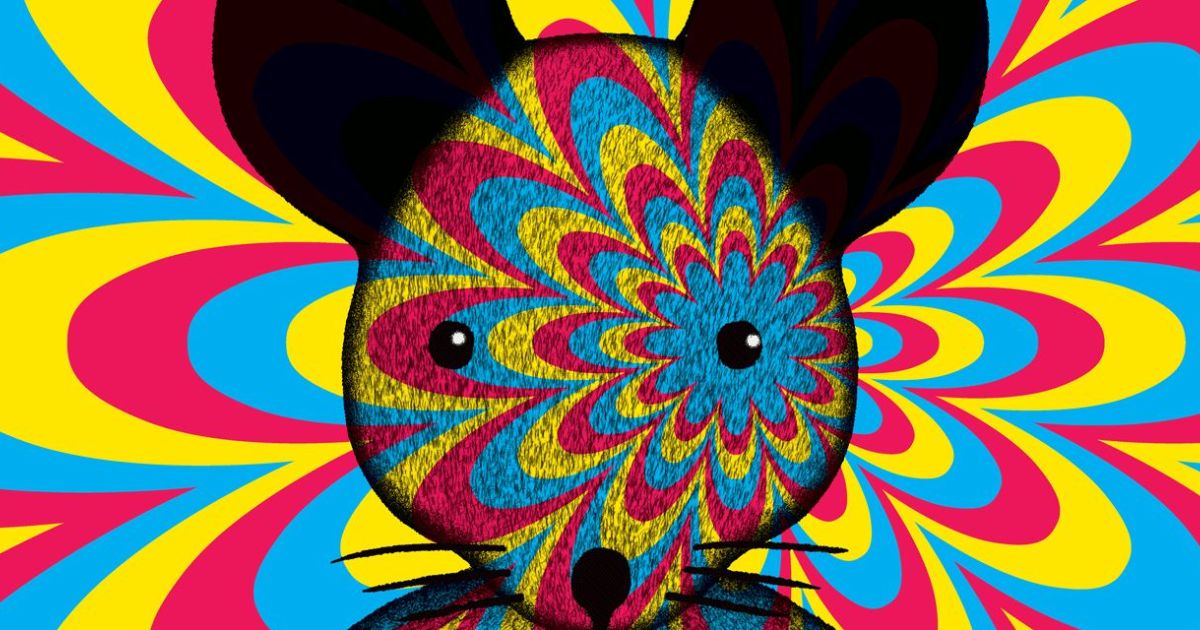Depression is like waking up in a never-ending gloomy morning; it robs joy from pleasurable activities and turns social interaction into negative experiences.
Negative affective bias perpetuates depression by sustaining sadness and rumination. Traditional antidepressants ameliorate the situation, but their onset can begin after weeks or months of use.
Whereas psychedelics could be a game changer with rapid, enduring effects on depression with one dose in a supervised setting coupled with therapy.
Swift Influence of Psychedelics on Negative Affective Bias
Research done on depressed rats showed that psychedelics like ketamine, scopolamine, and psilocybin (from magic mushrooms) rapidly changed the emotional states of the animals to neutrality and positivity.
These substances managed to suppress negative affective biases replacing dark thoughts with positive ones.
On the other hand, this study identified how lower psychedelic doses might sustain therapeutic effects hence justifying why one treatment can lead to protracted benefits.
Mechanisms Underlying Psychedelic Efficacy
The study investigated rapid antidepressant effects of ketamine, which is a dissociative drug known to act within the hippocampus, where memories and emotions are formed.
As the authors put it, drugs such as ketamine that are psychedelics have been shown to induce neural plasticity which makes neurons reorganize themselves again.
In depressed rats, Ketamine not only promoted neurogenesis but also transformed already established synaptic networks towards enhanced plasticity. This would explain why one shot of ketamine holds its anti-depressive impact over time.
The Rat Model and Negative Affective Bias
Rats were selected because they approximate human emotions although they may not be perfect representations of them, and they exhibit social as well as emotional behaviors typical for humans.
The study focused on negative affective bias which is an inclination to see things through a pessimistic perspective.
When depressed, rats displayed reluctance in engaging rewarding activities that characterized this bias.
However, psychedelics counteracted this bias, allowing the rats to behave normally and pursue enjoyable activities.
The Effect of Psychedelics on Memory and Learning
The study also touched on how psychedelics affect memory and learning. Rats given low amounts of these substances showed an improvement in mood without any deficits in learning.
Notably, psilocybin appeared to have the strongest effect in shaping choices toward happier outcomes, which might be indicative of its unique ability to alter existing memories.
On the other hand, traditional antidepressants mainly shift negative bias back towards neutrality without affecting memories.
Psilocybin’s Unique Role
Among all the tested psychedelics, psilocybin was found to have an exceptional capacity for shifting choices towards happier consequences even when depressed.
It is possible that psilocybin could be useful for “painting over” darker memories of patients and this can be a new direction for treating depression.
Direct Injection Test with Ketamine
Another test was conducted in which ketamine was directly injected into specific regions of the brain associated with memory formation and emotional processing to understand the mechanisms better.
This delivery led to conversion from negative emotional state to neutral mood among depressed rats.
Although there were limitations with producing chemical induced negative biases within rats, such findings provided some important information about how psychedelics change brain networks.
The Future Implications & Challenges
Once belittled as “hippie drugs”, psychedelics are seeing a resurgence of interest as potential mental health therapies for a range of conditions, including anxiety, depression and PTSD.
The research findings help in understanding the fast-acting antidepressant effects of psychedelics albeit scientists are still struggling to demystify how they work on the brain.
The challenge is still on how to develop drugs that would imitate the beneficial effects of psychedelics without causing hallucinogenic or dissociative side effects.
In conclusion, this study highlights the potential of psychedelics, such as ketamine and psilocybin, to quickly alleviate depression by changing brain networks linked with emotion and memory.
The results pave way for more studies into targeted and safer antidepressants. As psychedelic research advances, these substances may become game-changing tools in mental health care offering hope to individuals suffering from severe depression.




























